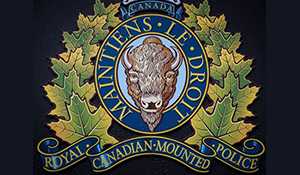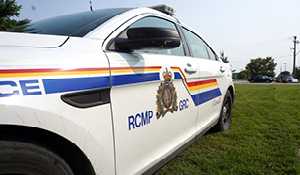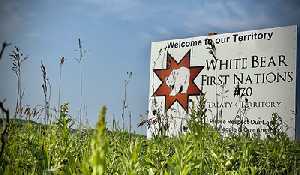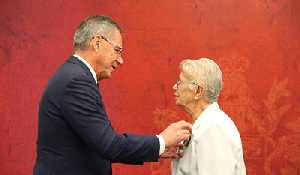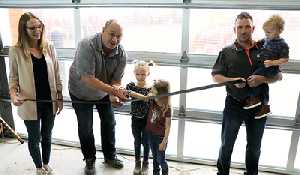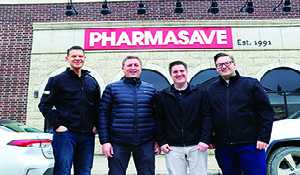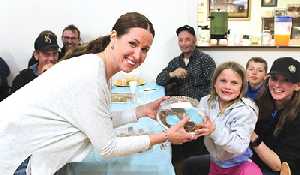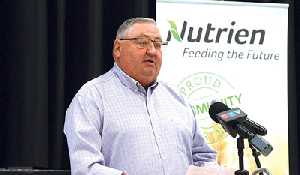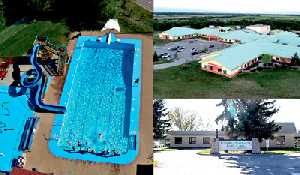Good Question Saskatchewan looking for your ideas and questions
March 18, 2024, 11:29 am
Kevin Weedmark
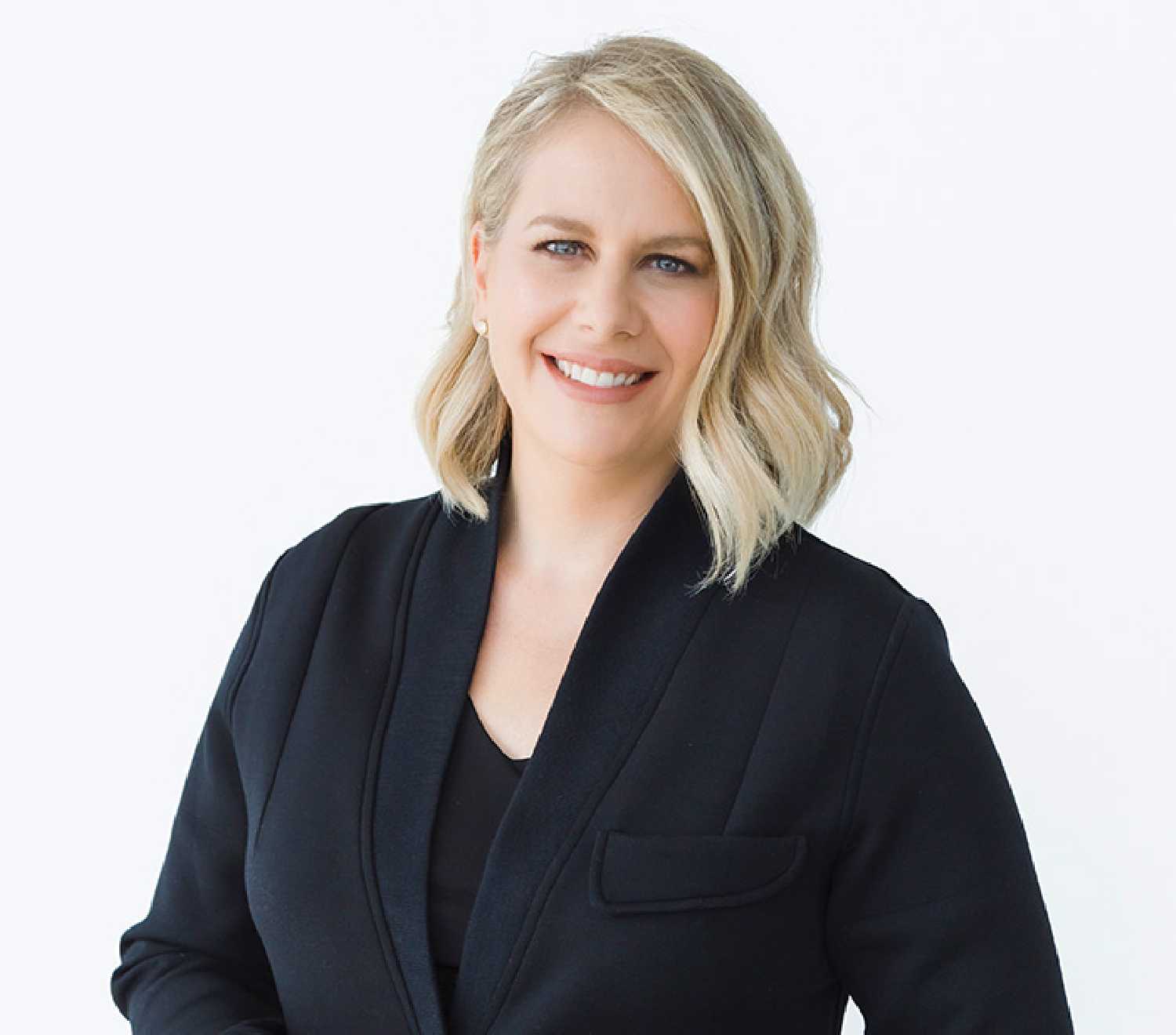

CBC Saskatchewan has launched a new podcast called “Good Question Saskatchewan.” The podcast takes people’s questions about anything in Saskatchewan—from weather to food to geography, to history and culture—and tries to answer them.
There’s just one thing that’s needed to keep the podcast rolling: Questions.
Podcast producer Nichole Huck and host Leisha Grebinski are on the hunt for questions for the new show.
“Nationally CBC is wanting to do more local podcasts. We have this format called ‘Good Question Saskatchewan.’ There’s a similar one in Montreal and there’s one in PEI as well, and the whole goal is, in some communities, to be a little bit more responsive to whatever the community wants us to be looking into,” explains Huck.
“I think as journalists we have ideas of what we think people are interested in and you get a show every day to do that with too, but this is a little bit more fun because it gives us the opportunity to just be reactive to whatever they actually want. That is why I wanted to reach out to you because right now probably some of our CBC listeners know about the podcast and are submitting questions but I’d like to get a wider range of questions from a wider part of the province because it’ll just make it richer.
“We just thought that there’s a real gap in Saskatchewan podcasts right now. There are a few specific to politics or very specific to agriculture or things like that, but there is nothing like this right now as of yet. So we thought that we’d find out if this was something that there’s an appetite for here.”
“I think that this podcast allows us to tap into the spirit of Saskatchewan,” adds Grebinski. “Of course we do that on the radio. It’s something that I think we’ve always felt like we had the opportunity to do. With this format we get to play around a little bit more and instead of following the news of the day, which we both care deeply about, we get to better understand people and places.
“So we’re just tapping into the spirit of Saskatchewan and rather than more stories that feed into polarization or conversations that only take place on social media, we get to just see one another as people who love Saskatchewan.”
Huck says the podcast can also be helpful to people who are not from Saskatchewan, but who are new to the province or planning to move here, or to people from the province who are feeling homesick and live elsewhere.
“Thinking about how many people are new to the province also, I kind of see this as building a little bit of a toolkit or a beginner’s guide to Saskatchewan,” says Huck. “Like if you are thinking about moving here, or if you just moved here, or if you moved away and are feeling homesick, this can help.
“My buddy who moved to Toronto was listening to it because he was feeling homesick and there was that Regina pizza episode and it just made him feel connected again.
“And it’s always through that lens of ‘What does this tell you about the culture of this place?’And it’s fascinating. I think that if you weren’t from here, I think you’d have a really good sense of the place and hopefully by the end, when we’re done with this podcast, you’ll have a really good sense of Saskatchewan, and that’s why we need more stories from different parts of the province as well.”
The podcast is brand new, launching at the end of January.
“We have five or six episodes so far and they’ll be dropped weekly on Tuesdays,” says Grebinski.
“I want to give you another example of something we’re working on right now that is a story as old as time—the ongoing conversation about daylight saving time and how we don’t bring forward or roll our clocks back. We’ve told that story over the years, but it’s kind of funny how, for me as someone who’s lived here my whole life, I actually couldn’t really tell you why.
“So I’m still finding that there’s so much to discover about Saskatchewan that you think you know, but do you really know? And they’re great conversation starters just about this place.
“Thinking about that story as one that’s has been told over and over—I mean Brad Wall campaigned saying ‘I’m getting rid of it’ in 2007, and we talked about a referendum in 2011 and it didn’t happen. But today in 2024, following a year where we saw unprecedented growth in Saskatchewan and so many people moving to Saskatchewan from outside of the country, how does that affect people today?
“So I talked to a guy who will be on a future podcast episode about this. He’s from India, he works at the university (of Saskatchewan), he connects researchers from all around the globe, he’s at VIDO, so a high profile place where a lot of stuff happens. He’s lining up meetings in Australia, and he’s trying to reach his parents back home. You wouldn’t think an hour would mean much but it throws his life off for a bit. So he’s representative of a whole lot of people here who may not have been here that long and are like ‘Why don’t we follow the rest of the country?’
“We’re going to tell you on Good Question Saskatchewan.
“And another one is bunnyhugs. I will tell you why we call it a bunnyhug because I’ve done research and Nichole and I found some people who could talk about it and that’s just for fun.
“So the podcast is a little explainer about the culture of this place, and hopefully when people listen they feel a sense of belonging and a sense of understanding even if they’re just a tourist and they’re like, ‘What’s cool about this place?’ They are these little bite-sized stories about Saskatchewan.”
What are some of the questions that have been tackled so far on some of the episodes?
“Nichole has mentioned Regina style pizza. That was our first episode and, wow, if we weren’t sure what would resonated with people, Regina pizza sure did,” says Grebinski.
“Because it’s not just about the pizza,” adds Huck. “It’s about the storytelling in the podcast.
“The one character that I got to go meet at Tumblers, the guy who owns Tumblers in Regina, he is just an amazing character. He is so passionate about pizza that he keeps his recipe locked up. Not just his recipe but his spices, and he takes his garbage to an undisclosed location so there’s not any business spying. He’s just like next level, and I think that people just really resonated with this guy and his passion for this pizza—I mean you love it or hate it, right?
“It’s the Greeks that we give credit to because if you go to The Tower restaurant in Estevan, you can get that same style of pizza, but it’s the storytelling in it that makes it fun. I think that we’re always trying to be a little bit surprising in the storytelling. There’s always a little element that makes you go, ‘Huh.’
“Kevin, probably every newcomer you talk to who’s moved to your part of the province has asked you about winter, right? Like, ‘What am I supposed to do in winter? What do other people do in winter?’ So we tackled that because it’s such a common question that people get, and ‘How are we supposed to dress?’
“It’s not just about the list on how to do it. It’s about people who came from hot countries and they thought they were going to die at the start of winter. These are the things that made them able to settle and not only accept winter, but embrace winter and become people who love winter. Leisha went and met this new Ghanaian student who’s first job was at an ice skating rink and she had to Google what inclement weather was before she started. So it’s just that storytelling that makes it special.”
“We did one on cold plunging which is a thing right now,” says Grebinski. “It’s a bit of a fad and you see a lot of it on social media. People are selling these plunge pools, there’s people jumping into lakes when it’s cold and sharing it on Instagram, but Nichole was thinking about how she was seeing people in Saskatchewan doing it.
“So we took this kind of craze around cold plunging and applied it to life in Saskatchewan and put a critical lens on it because we’re still journalists and wanted to know more. Like what are the benefits and what are the risks? How does this apply to life in Saskatchewan?
“We found people who do it for the emotional benefits, and so I loved that episode because it was a surprising take. And we’re all scrolling, we all see lots of things online, but then to bring it back home to a place like Saskatchewan, you learn about the people, you learn about how it applies here, and there were just a lot of layers to that story that I don’t think you can find anywhere else.”
“One of the questions I asked of someone who works outside—he has a pile company and spends most of his winter outside and takes a cold shower in the morning,” adds Huck. “He’s like, ‘Is there something to this? Why does taking a cold show actually feel better for me to go and be able to work outside for the rest of the day after that?’ So he was a bit of a surprising person asking the question, and I think that we were able to think about it in bigger terms too. If people are doing this for resilience, then what does it say about us Saskatchewan people who are always putting ourselves in uncomfortable situations? Does that just build resilience around our area and we as Saskatchewan people?
“So I think it’s really fun and I’m hopeful that it’s something that people who are taking a road trip in Saskatchewan can just put on in the car with their family. Or if you’re driving to work or wherever, you can just put it on and learn something, have something conversational to talk about with people. It’s like fun facts about this place that help you understand other people in it.”
Grebinski says they try to find different ways to answer the various questions, with a heavy focus on storytelling from real Saskatchewan people.
“Experts are part of it, but I think the examples that we just shared really just demonstrate to me that it’s about the people. So sure we can find people who know a bit about layering up in winter, and so yes, they are experts, but really the heart of that story was that person’s own personal experience and her own sense of adventure in moving here and taking a job that she knew nothing about.
“So yes, there’s always someone to call on who has expertise in whatever topic it is that we’re pursuing, but I really think what I’ve learned over the past few episodes—and I think Nichole would agree—it’s about our neighbors. It’s the people who are around us.
“I think we’ve always known this because both Nichole and I have worked at CBC a long time and we’re privileged to talk to people all the time, but there’s something special about this.”
Questions for the podcast can be emailed to goodquestionsask@cbc.ca
As part of the interview for this story, Nichole and Leisha asked Kevin for some ideas for questions for the podcast. Read his column next week for the questions he has.
